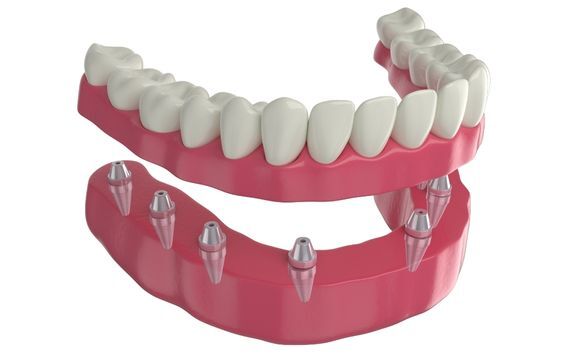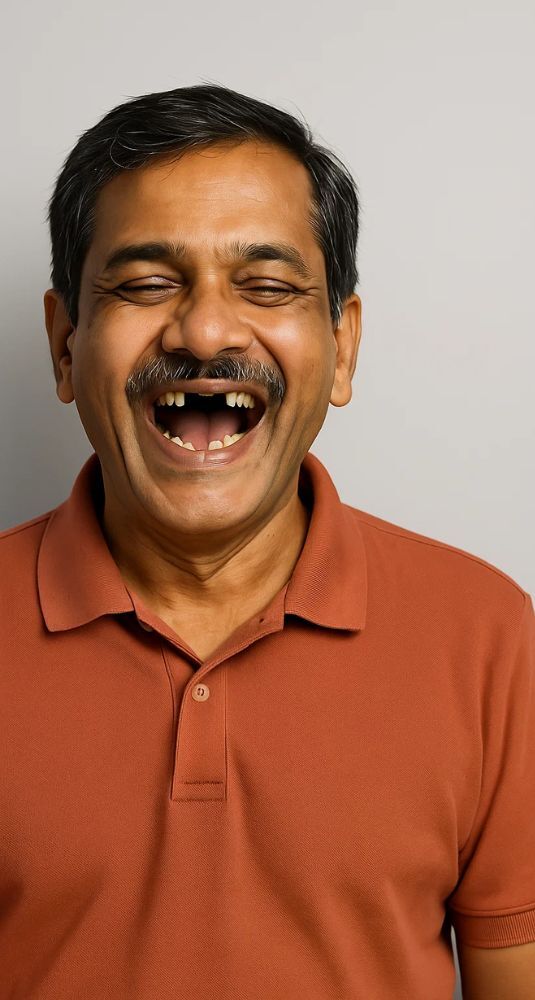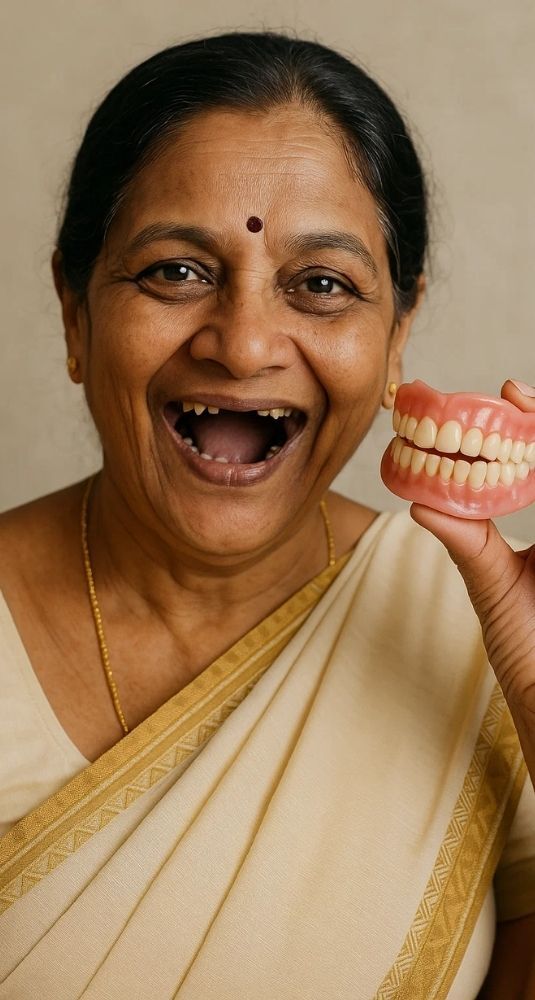Dentures
Missing teeth can affect more than just your smile—they can impact the way you eat, speak, and even how your face looks over time. We understand how important a healthy and confident smile is. That’s why we provide high-quality dentures that are customized to fit comfortably and look natural. Whether you are missing a few teeth or all of them, our experienced dental team will help you find the right denture solution to bring back your confidence and comfort.

Don’t Let Tooth Loss Hold You Back

What Are Dentures?
Dentures are removable dental appliances designed to replace missing teeth and the surrounding tissues. Modern dentures are more advanced than ever before—they are lightweight, comfortable, and designed to closely resemble your natural teeth. Depending on your needs, you can choose:
- Complete Dentures – For patients who have lost all teeth in the upper or lower jaw.
- Partial Dentures – For patients who are missing only a few teeth.
Dentures not only restore the appearance of your smile but also help improve chewing, speech, and overall oral health.
Who Needs Dentures?
Dentures are an effective solution if you:
- Have lost multiple or all teeth due to decay, gum disease, or injury
- Experience difficulty chewing or speaking because of missing teeth
- Notice changes in your facial shape or sagging cheeks caused by tooth loss
- Want a removable and affordable alternative to dental implants or bridges
- If you're looking for a quick solution to restore your smile



Denture Treatment Procedure
Our approach ensures you receive dentures that are comfortable, functional, and long-lasting. Here’s what you can expect:
Consultation & Oral Examination
Our dentist will examine your mouth and discuss the right denture option for you.
Impressions & Measurements
We take accurate impressions of your gums and jaws to ensure a perfect fit.
Trial
Fitting
A trial version of the denture is created to check comfort, bite, and appearance.
Final
Fabrication
Your custom dentures are crafted to resemble natural teeth in color, shape, and size.
Fitting &
Adjustments
The dentures are fitted and fine-tuned to make sure they feel natural.
Aftercare
Guidance
We guide you on how to maintain and care for your dentures for long-lasting use.

Dr. Vishwas S
Endodontics & Restorative Dentistry
Qualification
BDS, MDS
RATING

Dr Shivani Venkatesh
Endodontics & Restorative Dentistry
Qualification
BDS, MDS
RATING
Why Choose Summit Dental Clinic for Dentures?
Our team specializes in restorative dentistry with years of expertise.
Each denture is tailored to your unique oral structure for comfort and function.
We use modern techniques for precise fitting and natural-looking results.
Friendly, gentle, and transparent approach to make your treatment stress-free.
High-quality dentures that fit your budget without compromising on care.
Happy Smiles, Happy Patients
My life saver! From denture to filling to cleaning - Summit is top notch. The team are experts in their field and take great care. Even during Covid the safety & hygiene standards are maintained strictly - for me the best dentists in town!

A multi-speciality dental clinic with an elegant ambience. It is managed under the leadership of Dr. Vishvas and Dr. Shivani.The clinic has an efficient panel of consultants and in-house specialists catering to wide areas of dental treatment and care.The clinic is also well equipped with state if art and advanced facilities

Dentures:
Your Questions Answered
Modern dentures are designed for comfort. You may need a short adjustment period, but most patients adapt quickly.
With good care, dentures usually last 5–10 years. Regular dental checkups are important to ensure they fit well as your gums and jawbone change over time.
Yes, dentures allow you to chew most foods. It’s best to start with softer foods and gradually reintroduce harder ones.
Clean them daily with a soft denture brush and soak them in water overnight to keep their shape. Avoid using regular toothpaste, as it can be abrasive.
Absolutely! Our dentures are custom-made to match the shape, size, and shade of your natural teeth, giving you a natural-looking smile.
It’s generally advised to remove dentures at night to give your gums and mouth tissues time to rest.
Yes, options like dental implants and bridges are available. We’ll guide you on what works best depending on your oral health, lifestyle, and budget.
The cost depends on whether you need partial or complete dentures and the materials used. At Summit Dental Clinic, we offer transparent pricing and affordable options.


